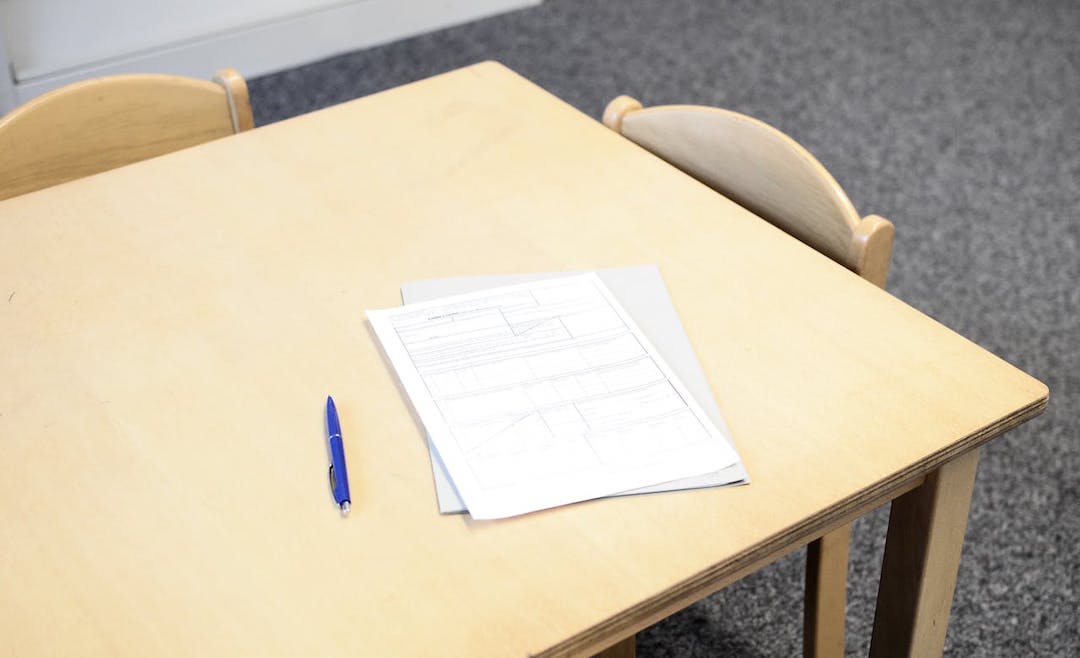Travel jobs are becoming increasingly popular among healthcare workers. If you are a pharmacy technician and are interested in traveling, you might consider choosing to work as a travel pharmacy technician.
Typically, travel pharmacy technicians pick up contracts that last anywhere from a few weeks to a few months in locations that are short-staffed. Travel jobs typically pay more than permanent positions. Retail pharmacies and hospitals are the most common places in need of traveling staff to fill in holes.
This guide will go over what a traveling pharmacy technician is, their responsibilities, where they work, how to become one, median salary, and more.
What is a Travel Pharmacy Technician?
Pharmacy technicians typically work in pharmacies and hospitals and spend their days organizing medications, compounding drugs, and helping patients get their prescriptions filled.
When companies have a hard time hiring permanent staff, need time to train new employees, or have their permanent staff members out on long-term leave, they may hire travel pharmacy technicians as a short-term staffing solution.
Travel pharmacy technicians usually sign a contract with an employer where they commit to working at the company for a short time, usually around 12 weeks. When the contract ends, the pharmacy technician can leave and find another contract, or extend their current contract if the organization still needs them.
What Does a Travel Pharmacy Technician Do?
Travel pharmacy technicians do the same things that regular pharmacy technicians do, but have some additional challenges. Traveling staff members have to be adaptable, fast learners, and comfortable working with a new set of coworkers every few weeks.
Travel pharmacy technicians' responsibilities include:
- Organizing medications. A pharmacy that is not well-organized can be a dangerous place. Pharmacy technicians have to make sure that all medications are properly labeled, stored, and organized to help avoid potentially harmful errors in drug administration.
- Collecting patient information. Pharmacy technicians will make sure that the patient's name, address, and birthday match the information on the prescription. Double-checking all information ensures that the correct medication is given to the patient.
- Compounding drugs. Pharmacy technicians who have a special certification can mix different ingredients to prepare medication for administration. Some pharmacy technicians will even compound sterile medications that are given through an intravenous line or as an injection.
- Measuring medications. Pharmacy technicians may have to measure or count different medications to ensure that the patient or customer receives the right amount of drug.
- Tracking inventory. Pharmacy technicians will count and track medications, ensuring that there is always enough of each drug on hand. Some pharmacy technicians have to count and monitor the distribution of controlled medications like narcotics and some stimulants.
- Dealing with customer payments. Pharmacy technicians figure out billing and make sure that the customer is charged appropriately. They can also help customers find discounts or apply coupons to help cover the cost of their medications.
- Coordinating with insurance companies. If a medication is covered by a patient’s insurance, the pharmacy technician is responsible for submitting a claim to the insurance company.
- Keeping customers safe. The pharmacy technician helps keep customers safe by watching out for things like extremely high medication doses, potential allergic reactions, and dangerous drug combinations.
Where Do Travel Pharmacy Technicians Work?
Travel pharmacy technicians usually work in large retail pharmacies or hospitals. Some compounding pharmacies, mail-order pharmacies, and universities may also use traveling pharmacy technicians.
Travel jobs can be found all over the country, in big cities, urban areas, and suburban communities.
Typically, travel pharmacy technicians will spend a lot of the day on their feet, interacting with customers, and keeping things tidy and organized. They usually work during normal daytime hours but may have to work evenings, nights, weekends, and holidays.
How Contracts & Assignments Work for Travel Pharmacy Technicians
If you want to work as a travel pharmacy technician, you will have to understand how travel contracts work.
A contract can last anywhere from a few weeks to a few months, but there is always a specific end date. Contracted travel employees are typically paid a higher hourly wage than permanent staff, but they often do not get benefits like PTO, sick leave, or even insurance.
In addition to the hourly wage, travel employees are often paid a stipend to help cover living expenses. These are typically paid weekly and depend on the cost of living of the location of employment. Not all travel contracts include a stipend.
Travel Pharmacy Technician Salaries, Benefits, & Job Outlook
On average, pharmacy technicians earn $40,300 annually or $19.37 per hour. Traveling pharmacy technicians usually earn more than permanent staff, around $19 per hour, according to ZipRecruiter data.
The job outlook for pharmacy technicians is also good, with an expected growth rate of 6% over the next decade. Pharmacy technicians enjoy good job stability whether they take permanent positions or decide to travel.
While travel pharmacy technicians are typically paid a higher hourly wage, they often do not receive benefits like paid time off. Pharmacy technicians who sign on with healthcare travel agencies may be able to secure healthcare benefits.
How to Become a Travel Pharmacy Technician
Travel pharmacy technicians have job flexibility, are paid a higher hourly wage, and get to work anywhere they would like. Most people can become travel pharmacy technicians in just a few months by doing the following:
- Obtain your high school diploma or GED. All pharmacy technicians must earn their high school diploma or GED before starting a training program or getting a job.
- Get the necessary training & education. Most states require pharmacy technicians to earn their certification. Programs that prepare you to take the certification exam can be completed online in as little as four months (such as our program here at Stepful), but some people choose to get an associate degree as a pharmacy technician.
- Pass your certification exam. The CPhT certification from the Pharmacy Technician Certification Board (PTCB) is the most widely recognized in the U.S. The PTCB offers several advanced certifications for pharmacy technicians as well.
- Apply for a license. Some states require pharmacy technicians to be licensed in addition to earning a certification. Travel pharmacy technicians may have to apply for licenses in many different states, depending on where they decide to work.
- Create a good resume. You do not have to have experience as a pharmacy technician to put together a good resume. Adding volunteer experience, extracurricular activities, and leadership positions can all help your entry-level resume stand out.
- Get some experience. Before you can start working as a traveling pharmacy technician, you will probably need some experience in a permanent position. This is because companies who hire traveling pharmacy technicians usually have an urgent need, and cannot spend time training and educating someone who is brand new in the field.
- Maintain your certification and license. Traveling pharmacy technicians should make sure to maintain their certifications and licenses in each state where they work. A PTCB certification has to be renewed every two years.
How Travel Pharmacy Technician Agencies Work
The easiest way to find work as a travel pharmacy technician is to get on with a healthcare travel agency. These agencies work with hospitals or pharmacies that have a need and connect them with pharmacy technicians looking for work.
When a pharmacy technician signs up with an agency, they can let the agency know what types of jobs they are looking for and where they would like to work. Then, when a healthcare company in that area has a need, the agency will contact the pharmacy technician.
If the pharmacy technician is interested in the job, the agency will coordinate with the healthcare company and negotiate the terms of the contract, help the pharmacy technician complete the necessary paperwork, and protect the pharmacy technician in case of a breach of contract.




.svg)












